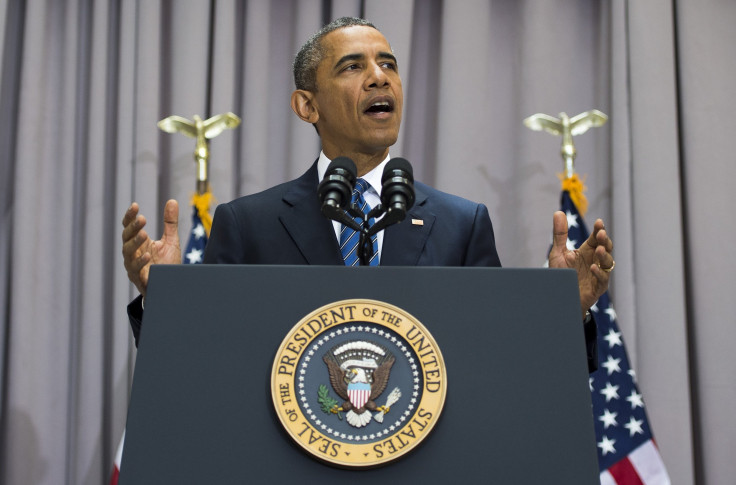Obama Iran Nuclear Deal Speech: 'We Need Clear Thinking In Our Foreign Policy,' President Says

U.S. President Barack Obama has again defended the importance of the Iran nuclear deal, which he called Wednesday "the most consequential foreign policy debate that our country has had since the invasion of Iraq" during a critical speech at American University in Washington D.C. Much of his address focused on contrasting the mindset that dragged the United State into the war in Iraq, as well as how the Iran deal would help avert war and prevent Iran from attaining a nuclear weapon.
"More than a decade later we still live with the consequences of the decision to invade Iraq," Obama said. "I raise this recent history because now more than ever we need clear thinking in our foreign policy."
The deal, a culmination of two years of talks, was agreed to in July to the dismay of political hard-liners in both countries. Reached following weeks of intense negotiations in Vienna, the agreement would see eased sanctions against Iran in exchange for a commitment from the Islamic Republic not to develop nuclear weapons and to allow inspections of the country's nuclear facilities.
.@POTUS speaking today at @AmericanU. Deep dive on why the #IranDeal is good and important for the USA! __ pic.twitter.com/SGqowOpR9H
— John Bisognano (@johnbisognano) August 5, 2015The president Wednesday drew historical parallels with a speech by President John F. Kennedy in 1963 also held at American University that proposed a nuclear test ban with the former Soviet Union at the height of the Cold War.
"The agreement now reached between the international community and the Islamic Republic of Iran builds on this tradition of strong diplomacy," Obama said Wednesday.
He called it a "strong deal" that has gained global support, noting that the United Nation's Security Council has lent it unanimous support.
Facing intense criticism from opponents in the Republican-controlled Congress, Obama is likely to resort to using his veto power to protect the agreement. Obama will need to summon enough support to ensure opponents are not able to secure the two-thirds Congressional majority necessary to override a presidential veto.
Before Congress votes on the deal at the end of a 60-day review of the agreement, Obama was hoping to gain the backing of democrats still undecided.
Critics of the agreement have argued Iran cannot be trusted and have said the eased sanctions will allow Iran to expand its influence in the region and better its economy, while covertly working to advance its nuclear weapons program. Obama's administration has said protections are in place so that sanctions can immediately be imposed in the event Iran fails to abide to its end of the agreement.
"By killing this deal Congress would not only pave Iran's pathway to a bomb, it would accelerate it," he said.
Among the deal's fiercest critics is Israel's Prime Minister Benjamin Netanyahu, who warned Tuesday in a video address geared toward American Jews that the deal would inevitably allow Iran to secure nuclear weapons and would lead to war. Polls have revealed a majority of Americans, including American Jews, support the agreement with Iran.
© Copyright IBTimes 2024. All rights reserved.












